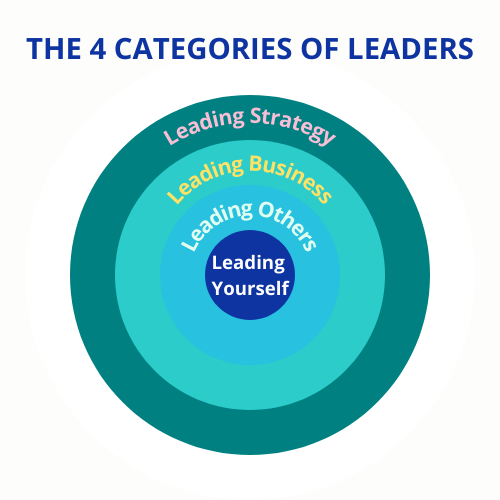
In his work on Self Leadership, Andrew Bryant raises some very interesting points. Here are some:
The concept of Self-leadership can be found in the writings of philosophers and poets, both Eastern and Western:
| EASTERN PHILOSOPHY | WESTERN PHILOSOPHY |
| “Mastering others is strength. Mastering yourself is true power.” – Lao Tzu | “I am the master of my fate, I am the captain of my soul.” – Henley |
Charles Manz was the first to use the term ‘Self-leadership’ in 1983 and defined it as; “a comprehensive self-influence perspective that concerns leading oneself”.
Peter Drucker (2010) said that being a Self-leader is to serve as chief, captain, or CEO of one’s own life.
Brian Tracy said that “Self-leadership is the practice of intentionally influencing your thinking, feeling and actions towards your objective/s”
Self-leadership (a.k.a Personal Mastery) is the answer to how do we develop ourselves to survive and thrive in a Volatile, Uncertain, Complex, and Ambiguous world.
Self-leadership is the Critical Success Factor for individual and organizational success.
Self-leadership according to Brian Tracy is about constantly developing the ‘inner game‘ (mindset) and the ‘outer game’ (action):
The ‘inner game’ (mindset) consists of:
- Intention: (having a ‘why’) precedes any purposeful action (behavior). Actions have impact which the self-leader evaluates via feedback.
- Self-awareness: is about knowing your intentions and values, as well as knowing your personality, what can ‘push your buttons’ and derail you. There are clear correlations between self-awareness and effective leadership, so developing self-awareness must be a constant habit. When coaching your team, transformation occurs, when you increase self-awareness about what drives behaviors, rather than just trying to modify behavior.
- Self-confidence: comes from knowing your capacity and strengths. As we take action and develop skills, we become more confident. Often people sabotage their confidence by self-judgement and ‘discounting’. Self-leadership is about being grounded and realistic about what you are good at, and what needs improving, this leads to true authenticity and humility.
- Self-efficacy (self-belief): is the belief that whatever comes our way, we can handle it. We can take the feedback, Accept, Adjust and Advance. With self-efficacy, we can be more creative and innovative.When our inner game is good, our outer game becomes more efficient and effective through influence and impact. We achieve Personal Mastery.
The ‘outer game’ (action) consists of:
- Influence: is the result of intentional action. Through self-awareness and self-confidence, we increase our capacity to Influence. Because we are grounded in ourselves, we can focus on others, and what is best for them. We can therefore positively influence ourselves and the world around us to facilitate change.
- Impact: is how intention and influence are measured in the world.
“Self-leadership is having a developed sense of who you are, what you can do, where you are going coupled with the ability to influence your communication, emotions and behavior on the way to getting there.” – Bryant, Kazan 2012
In this current disruptive age, organizational learning has become the only sustainable advantage. Senge noted the link between self-leadership and organizational learning:
“Organizations learn only through individuals who learn. Individual learning does not guarantee organizational learning. But without it, no organizational learning occurs.” – Peter Senge